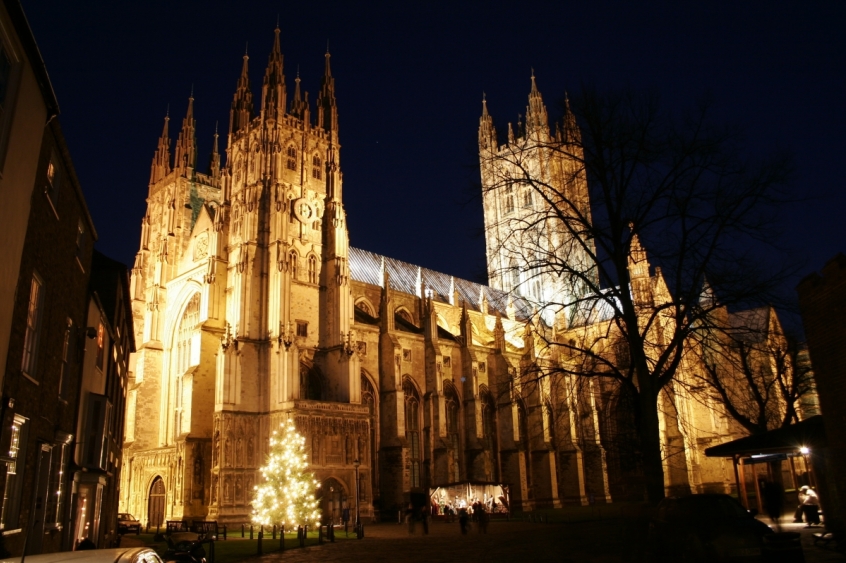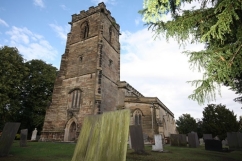
There aren't many people who've had such an impact on history as St Augustine of Canterbury. On his feast day today, it's worth exploring who he was and why he was so influential.
Not to be confused with St Augustine of Hippo, the Church father, Augustine of Canterbury was the man chosen by the Pope to convert the Britons to Christianity.
He was the prior of a monastery in Rome when chosen by Gregory the Great, who was Pope at the time, to lead a mission to England.
The Christian faith had already been introduced in the 3rd or 4th century, but the gradual collapse of Roman rule and the invasion of the Saxons and other Germanic tribes meant it fell into abeyance in parts of the country, while others became associated with Celtic Christianity.
Augustine was commissioned in AD 595. After a couple of false starts, he arrived in Kent in AD 597 and found a base at Canterbury. From here he undertook the evangelisation of England.
The King of Kent was converted along with many of his subjects. Although Augustine then died a few years later, in 604, the foundation he had built became the basis for the next 1,500 year of Christianity in the UK.
The (eventually Roman) Catholic faith that Augustine brought to these isles was different to the Celtic expression that held on in parts. Celtic Christians celebrated Easter on a different date and had various different worship practices. With the advancement of Augustine's more universal brand of Christianity, there was something of an inevitable point of decision.
It came at the Synod of Whitby in AD 664. At the synod, Celtic and Catholic Christians came together to discuss their differences. The King of Northumbria ruled that the people of his kingdom would follow Roman traditions rather than the Celtic version of the faith and from then on, the Roman church had the upper hand in what eventually became the UK.
Celtic Christianity hung on in parts and has had a partial renaissance in recent decades, but by the time of the Norman invasion in 1066, the triumph of Roman Christianity, at least at the level of the elite of English society, was assured.
Over the next few hundred years all was relatively stable from a religious point of view. But the stability came to an end in the mid 16<sup>th century, when the Reformation reached British shores. The Reformation in England and Scotland took different forms, with each nation creating a national Church, but England retained many of the features of Catholic Christianity which Augustine had first introduced a millennium before – bishops being the most obvious.
Crucially, though, it was the centralising, universal character of the Roman Church which was also carried over into the Anglican faith. Rome was replaced by Canterbury, the seat of the first English archbishop – Augustine himself.
To be accepted in English society meant to be Anglican. Despite a brief experiment with Puritanism after the Civil War, for most of the past 500 years this arrangement held. Anglicanism was the default faith of the English state and those outside it – be they Roman Catholic or Nonconformist – were at best second class citizens.
When the Pilgrim Fathers set sail for the 'new world' part of their reasoning was to escape this stifling religious conformity. It took a couple of hundred years, but what developed in America was a form of religious freedom and toleration that was the direct result of the persecution non-Anglicans had experienced in England.
The role that this marketplace of ideas and theologies played on the development of American Protestantism, the spirit of capitalism and eventually, the American 'empire' is hard to overstate.
There are obviously many more factors at play than just the influence of the faith Augustine brought to the English.
However, for the last three centuries the world has been dominated by the British and then the American empires – direct descendants of the Christian culture brought to the UK by St Augustine of Canterbury. So, although he could never have foreseen it when he set off for a backwater of the former Roman Empire, by the time his brief work on English shores was done he had dropped a stone into history whose ripples are still expanding today.













